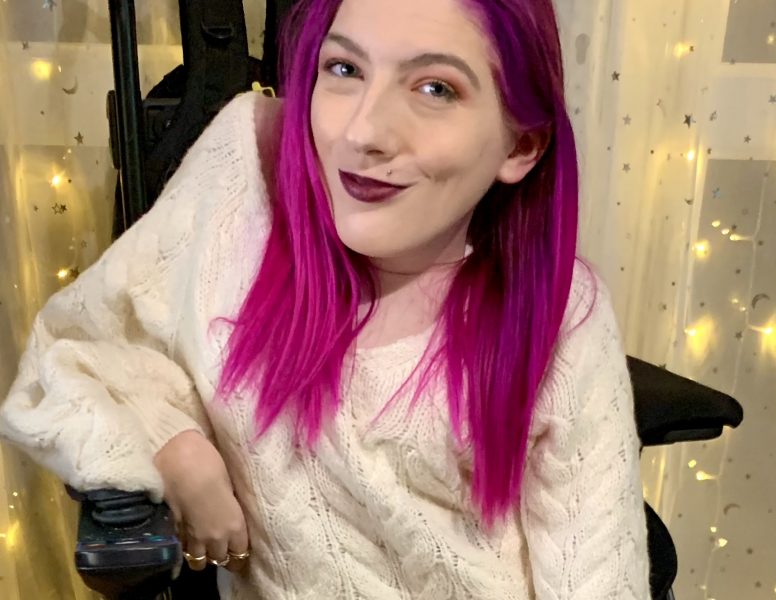Re-Empowerment, Education and Equality: SEND Review implications for Young people
Melody Powell led ALLFIE’s SEND Review consultation for Young Disabled people, and reports back on key changes to address inequality in education for Disabled children and Young people, as well as students with different intersectional identities.

Listen to ‘Re-Empowerment, Education and Equality’
The Government SEND Review Green Paper, published in March 2022, motivated many Young people to start reflecting on their experiences with the education system. Over the last few months, ALLFIE engaged with a diverse range of Young people across England to discuss what works, what does not work and what needs to change when it comes to the education of Disabled children and Young People.
When talking about everyone’s experiences, it became clear that there are huge issues within the education system.
The concerns of Young People were represented poorly in the review. So, it was not surprising that many of the Young People we spoke with felt that the new suggested SEND practice was causing more problems than it was fixing. We were all hoping to see something written about transition to higher education, supporting access to extracurricular activities and events so Disabled Young People can socialise like everyone else.
However, there appeared to be a lack of understanding that Disabled students are individuals with intersectional identities and lifestyles, not just people who go to school/college.
Young People were hoping this SEND review would address the variety in what support you get at school/college, depending on where you live, and offer a strategy to avoid this postcode lottery. However, instead, it was just suggested that the support provided would be broken down into a tiered system, possibly causing further discrepancies in the support offered depending on where you fall on the scale. In addition, this medicalised categorising will negatively impact how Disabled Young People are perceived by peers, a problem that students want to improve, not exacerbate.
With everything in the media over the last few years about the importance of positive mental health, we all thought it was a given that Disabled students’ Mental Health would be a large part of this review. But again, as this is not a core education issue, it does not seem to have been deemed important enough to discuss in detail.
Representation within the curriculum was another critical point we hoped to see a demand for. Relationship and Sex education does not even cater to Disabled Students, yet there was no mention of this being discriminatory within the review. How will we ever have an inclusive and diverse society if Young People are only represented if they are cis-gendered heterosexual white non-Disabled people?
If singular identities fail to be represented, there does not appear to be any chance of us seeing our intersectional lives and identities being embraced.
It was mentioned in the Green paper that more effective training needs to be given to school staff, but will Young Disabled people and Disabled Peoples Organisations be involved in delivering this training?
If they are not involved, how can we be sure staff are taught skills that improve the experience of Disabled Students in education. We would all love to see more of the Social Model of Disability and less of the Medical Model being used in Education and SEND practice, as currently, we feel reduced to nothing but problems in need of fixing.
Fortunately, there are schools that have good SEND practice, yet the review did not mention any of those examples.
How are we to develop a strong and sustainable SEND framework if we do not highlight the positives and adopt the strategies that work?
It is not a race to see who the best school for Disabled students is; it is about creating an inclusive society where Young Disabled People are empowered, educated and equal.
By Melody Powell
(She/They)
![ALLFIE [logo]](https://www.allfie.org.uk/wp-content/themes/allfie-base-theme/assets/img/allfie-logo-original.svg)



